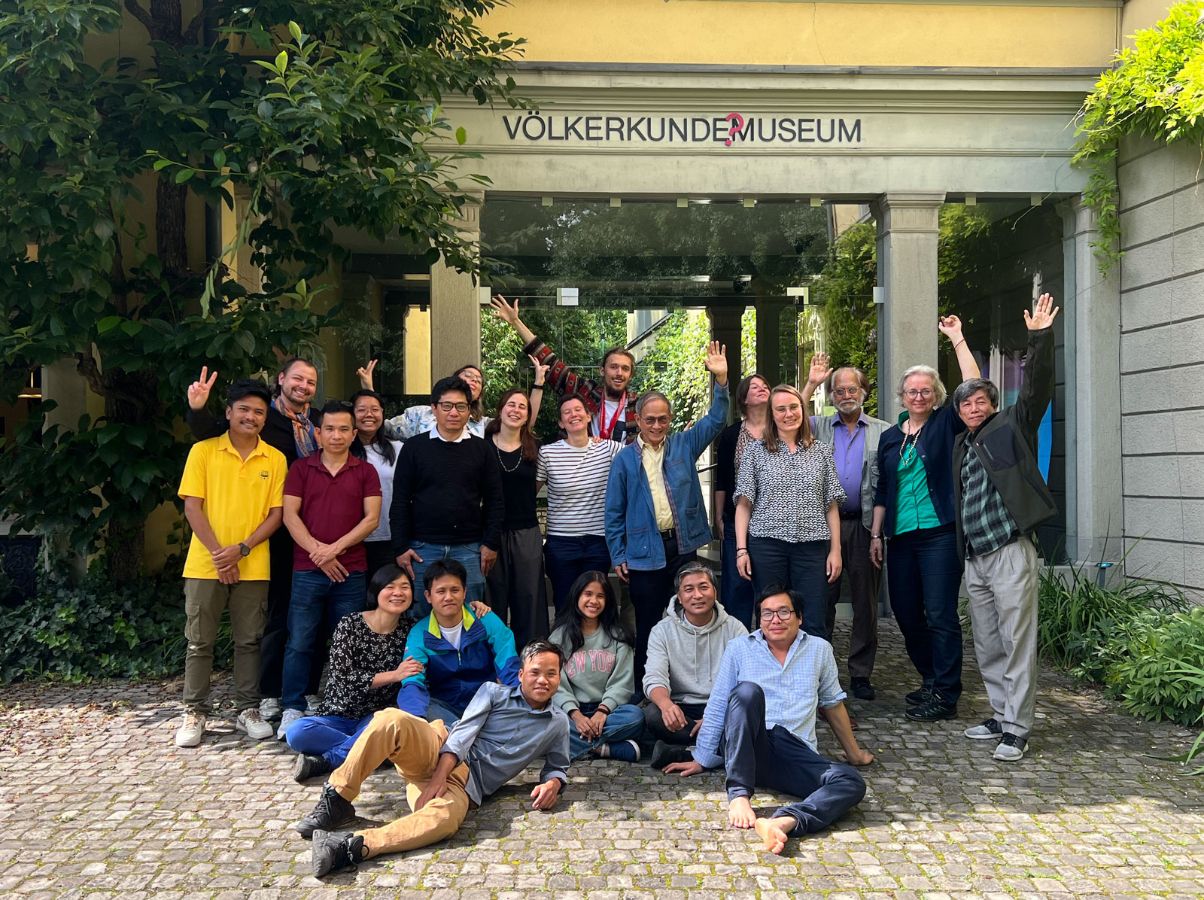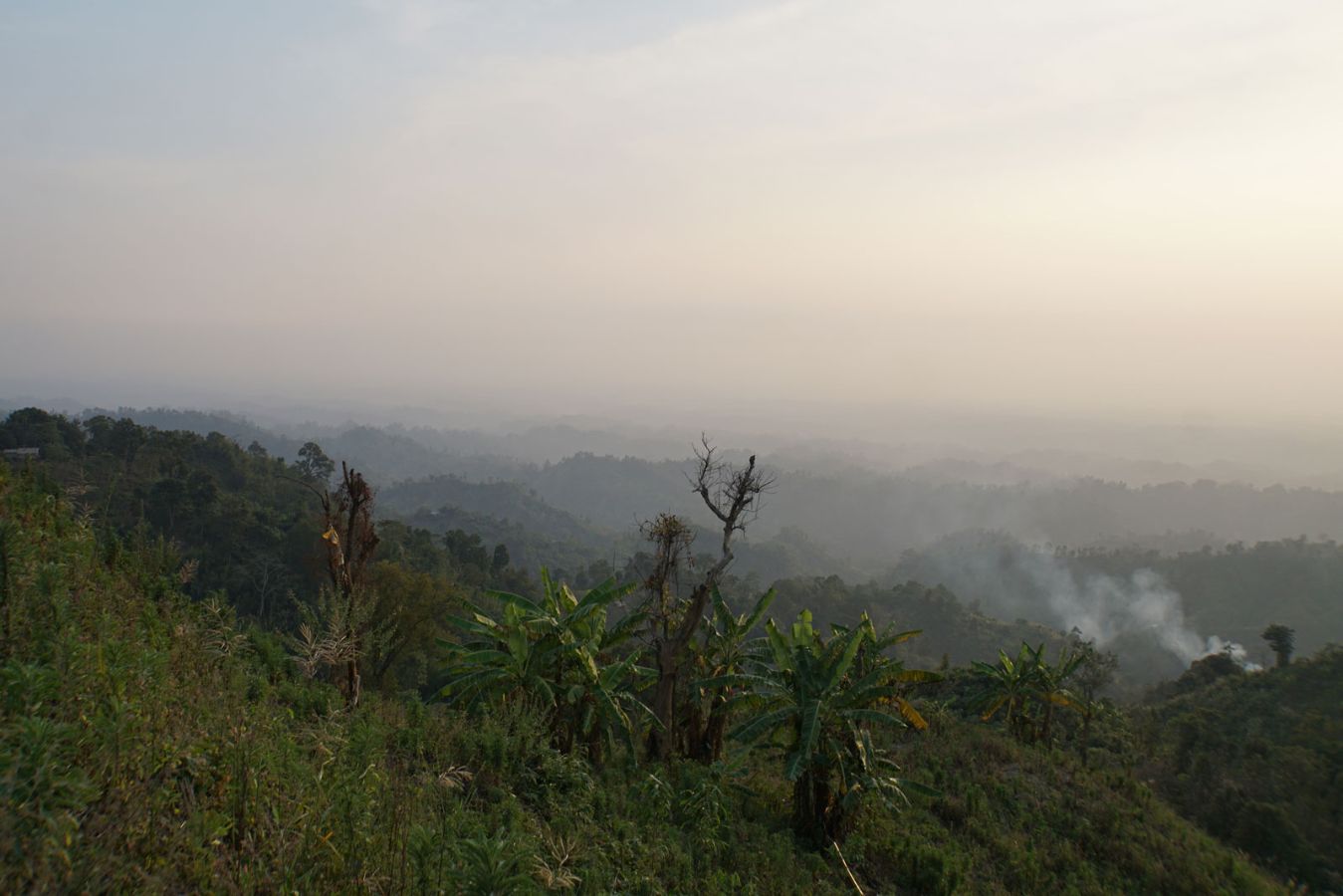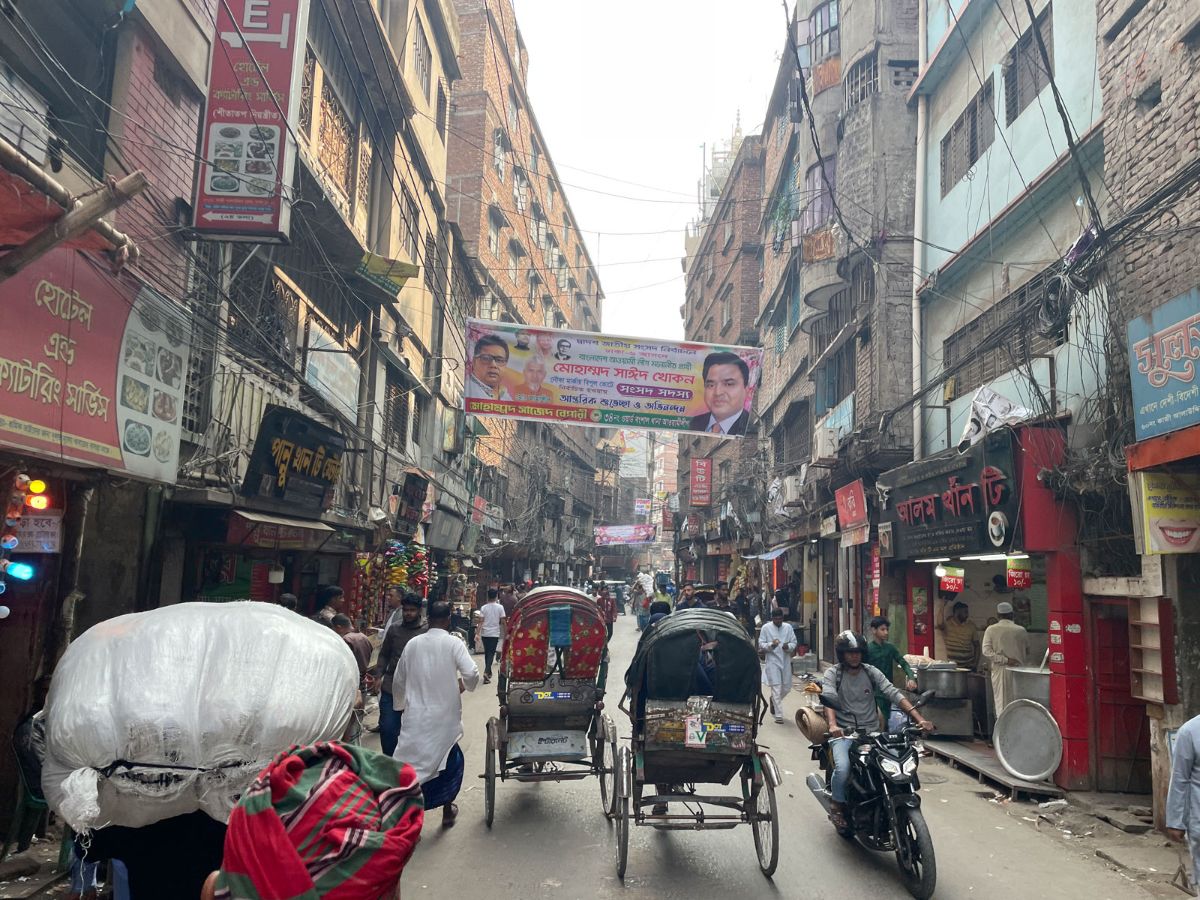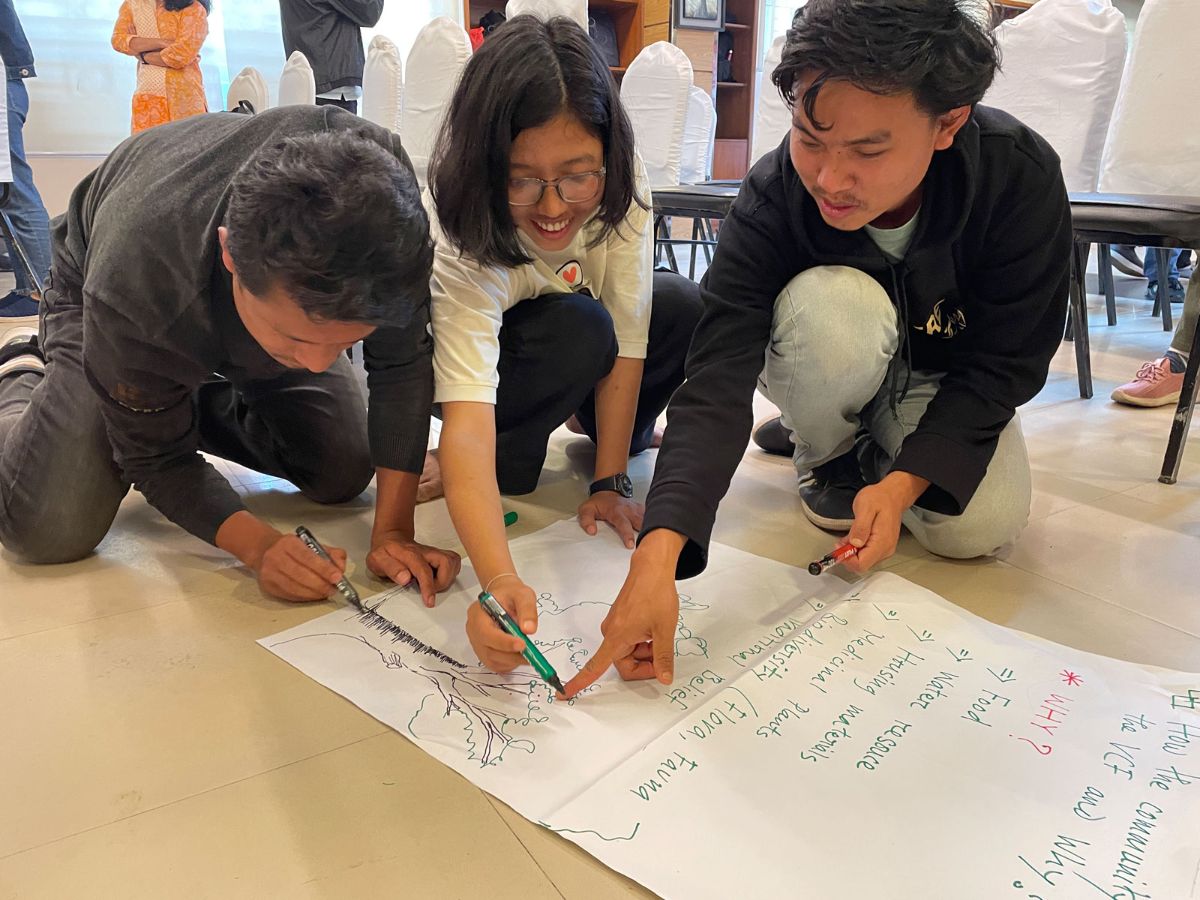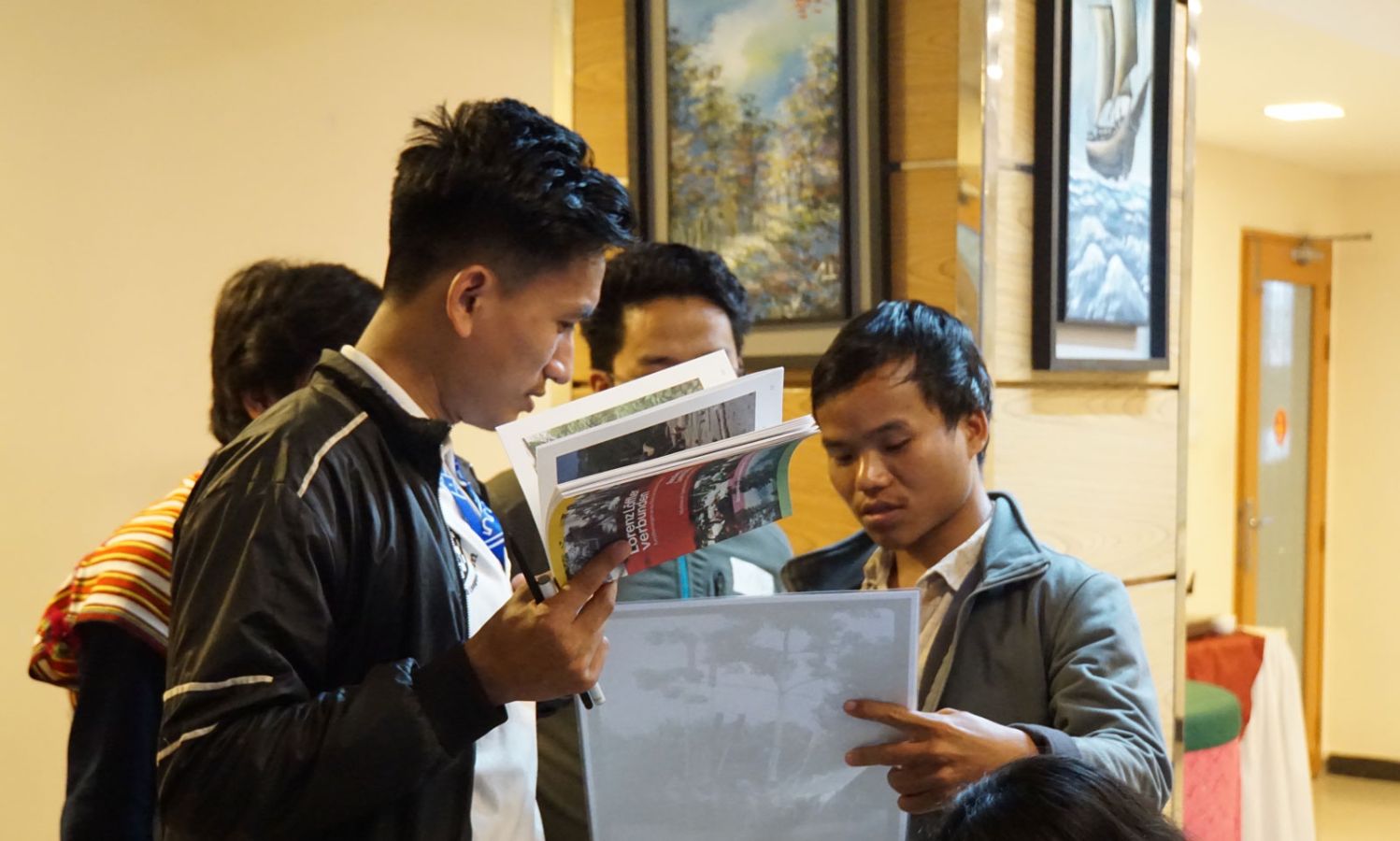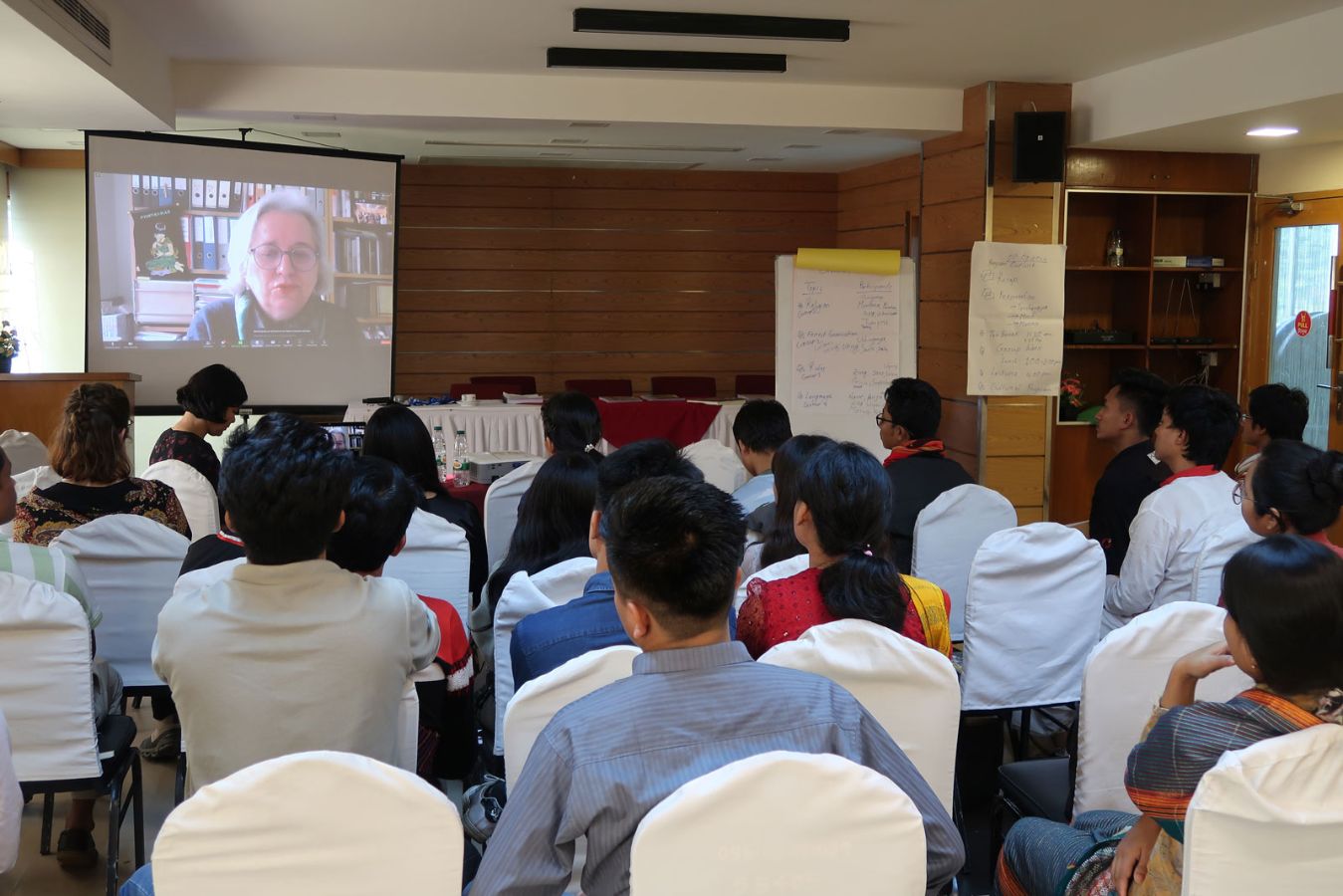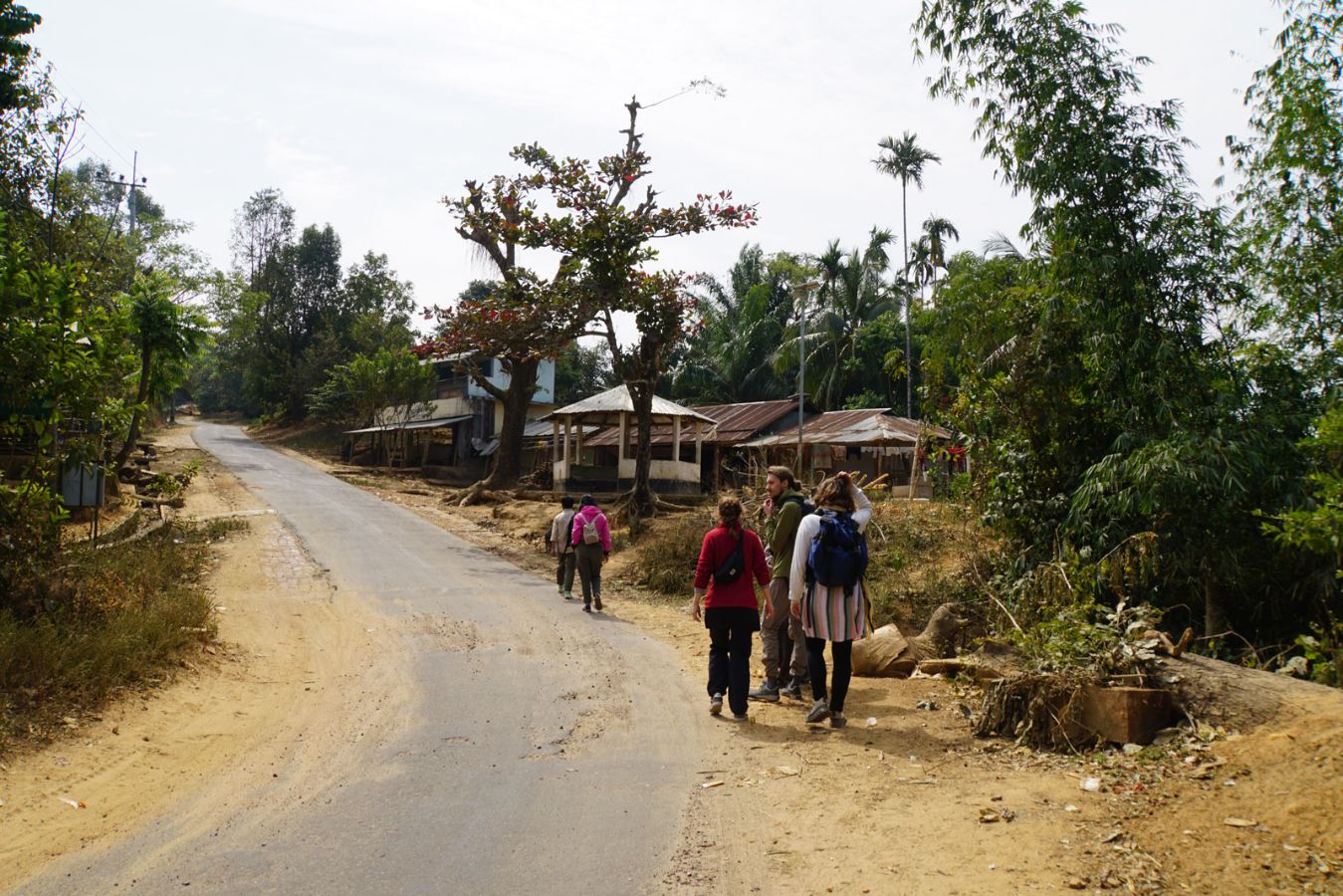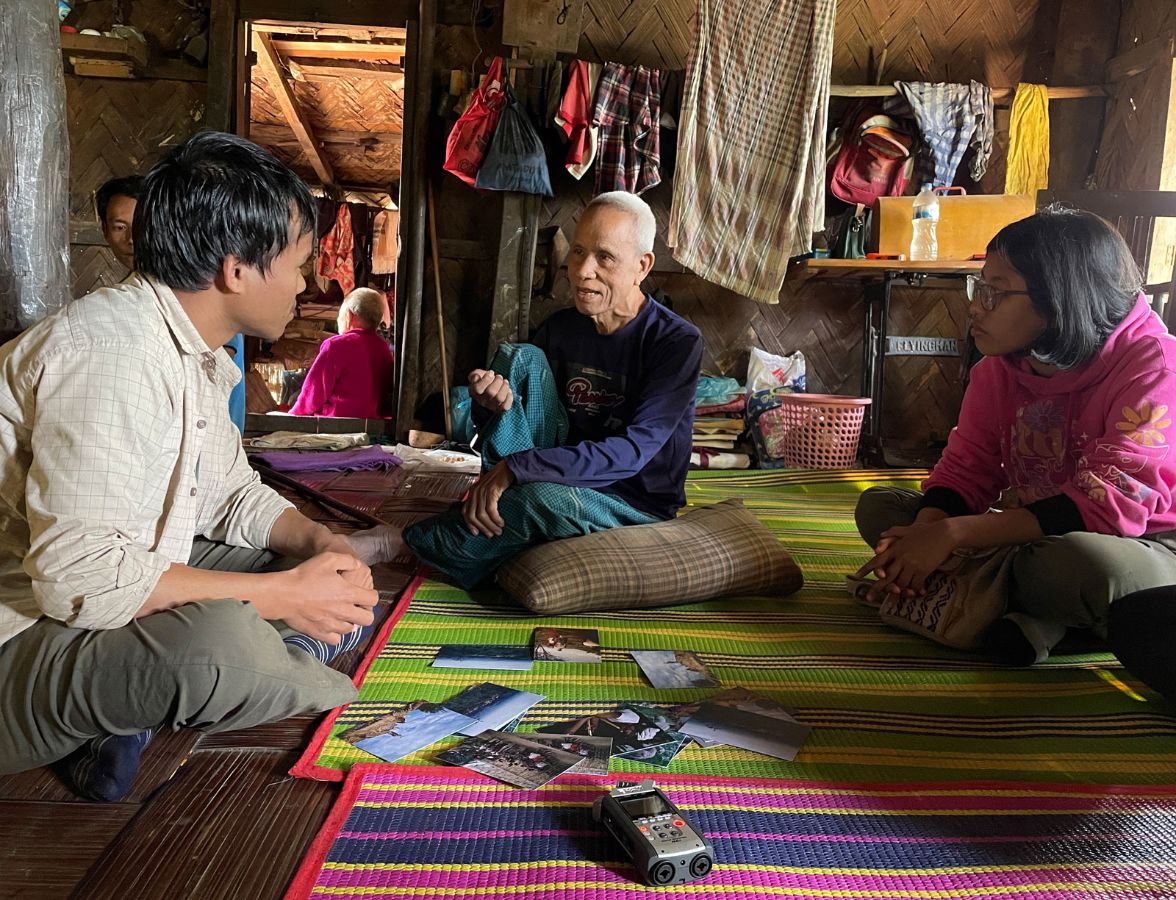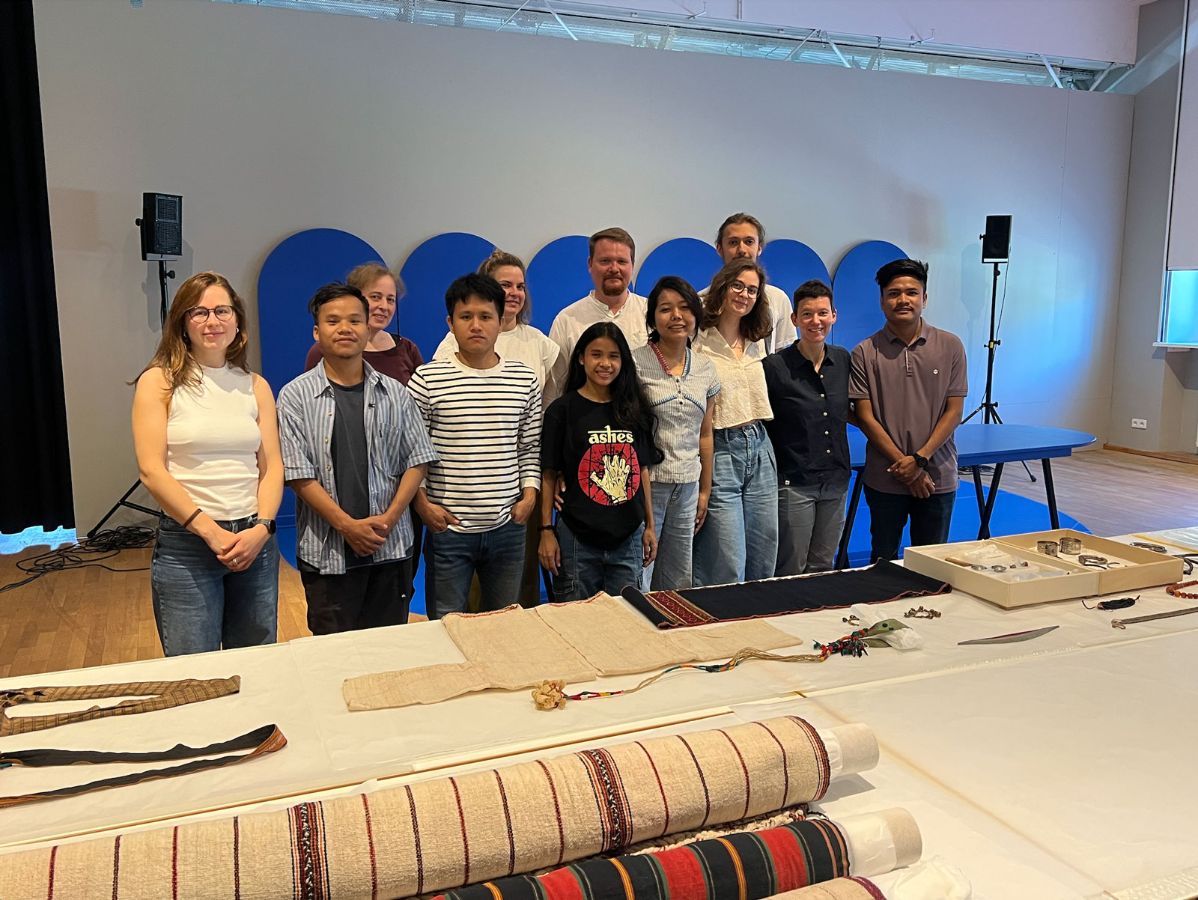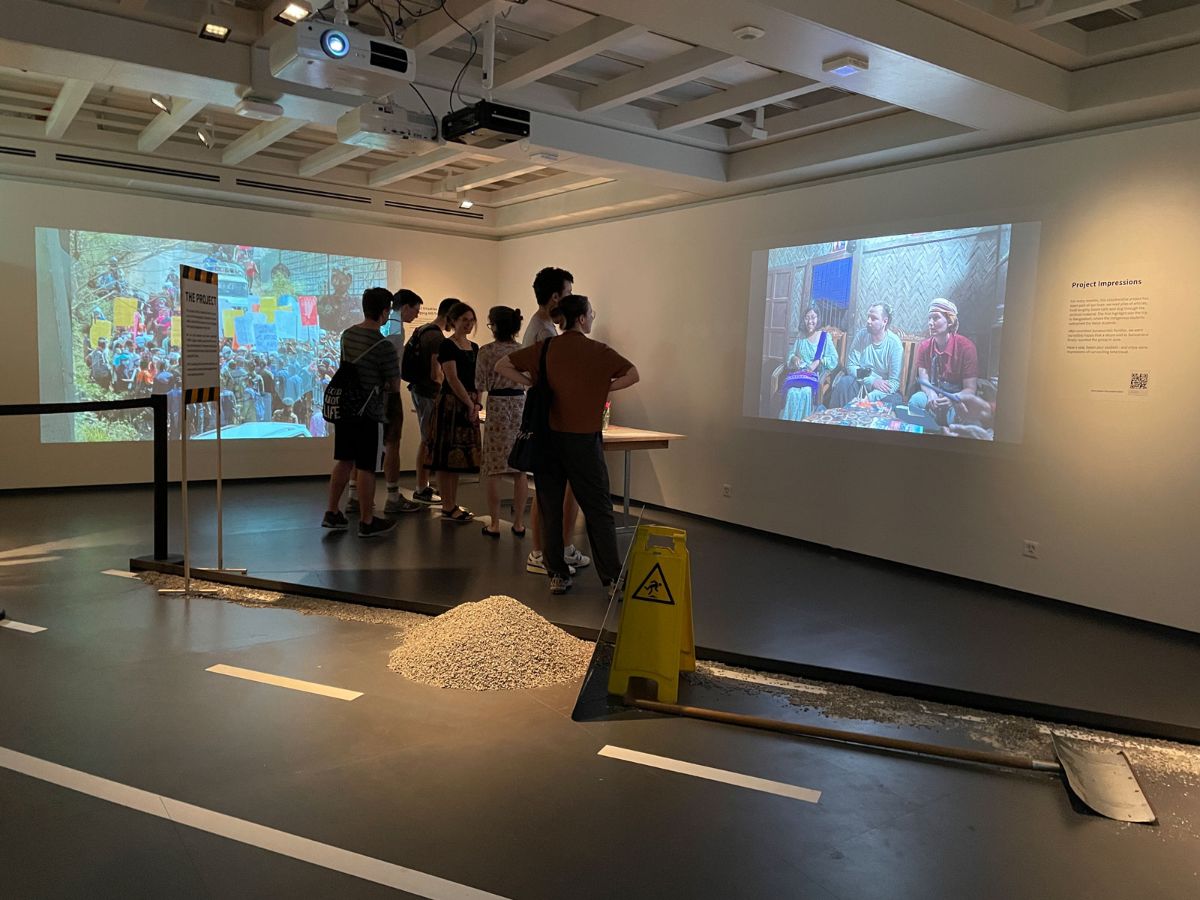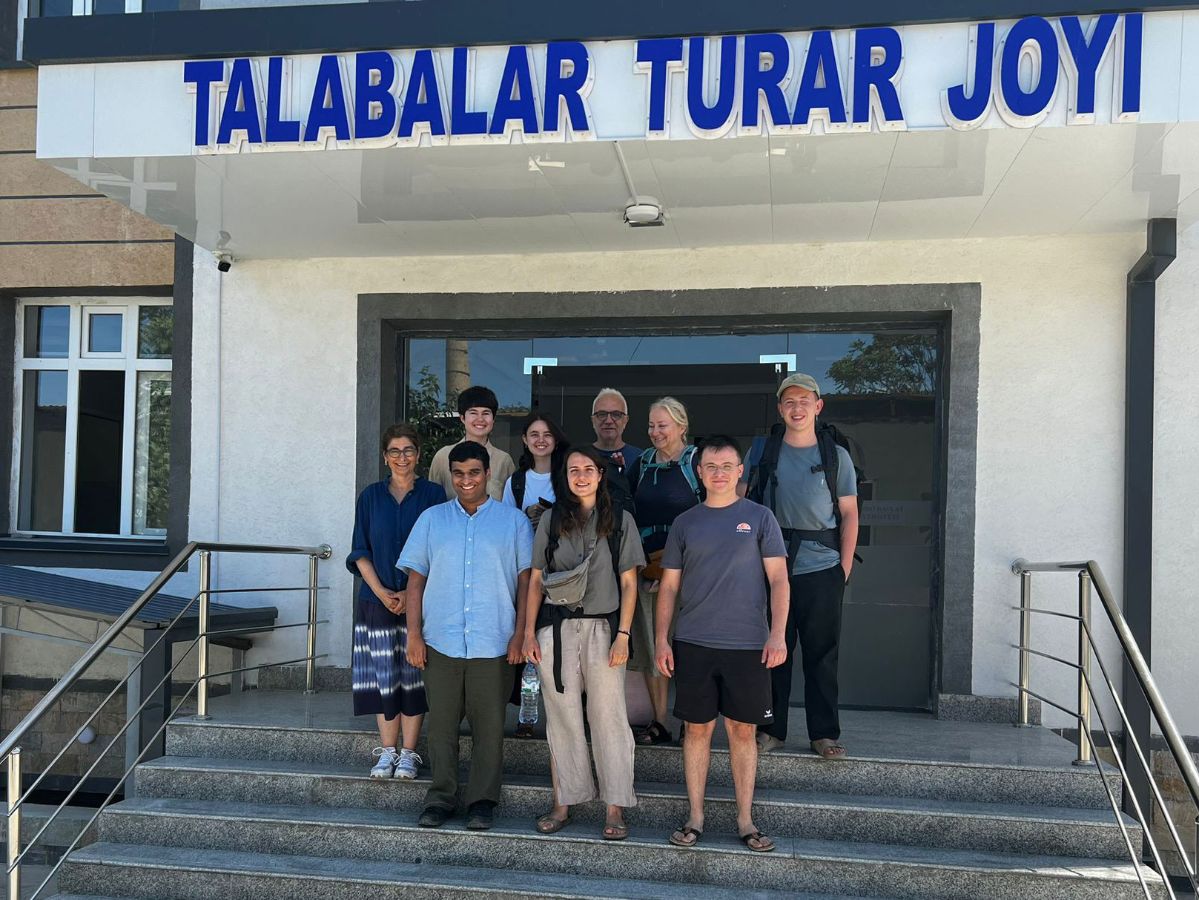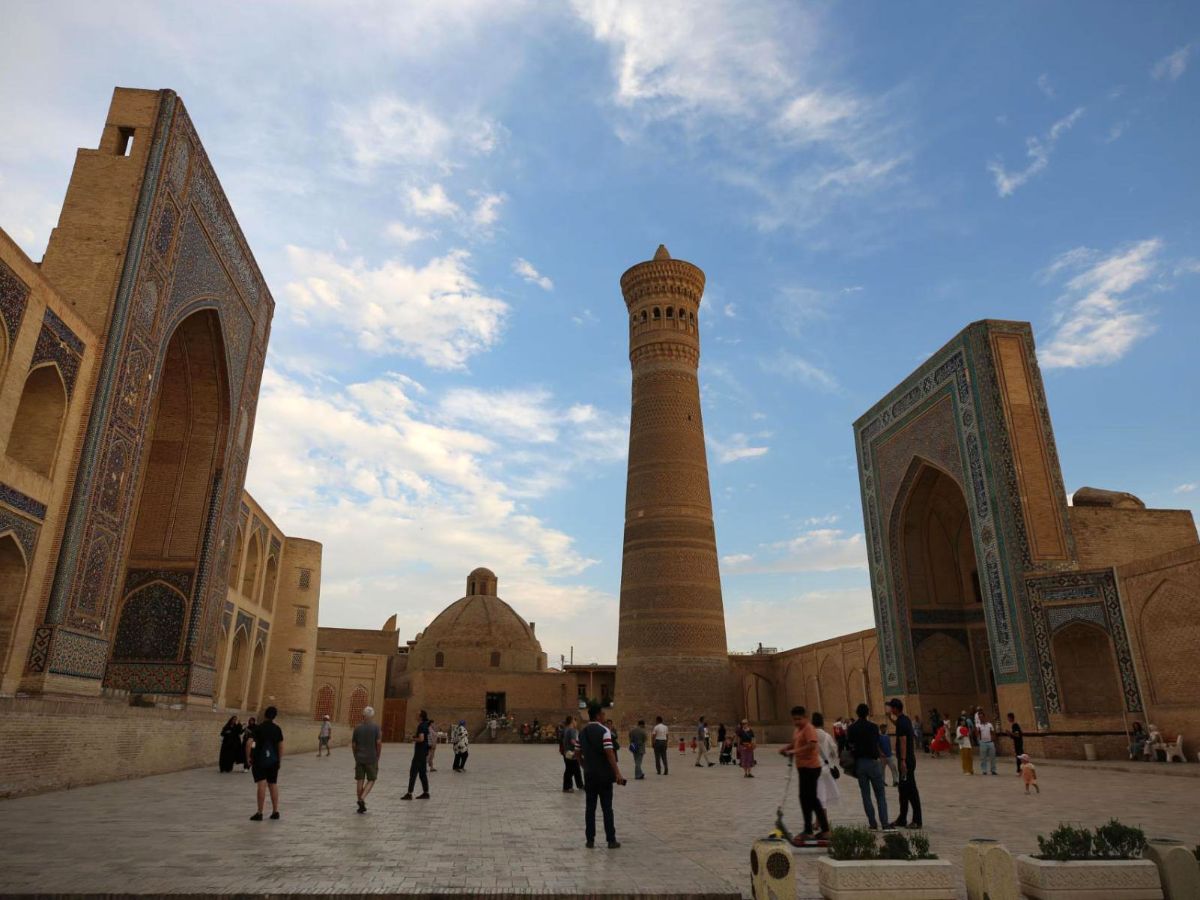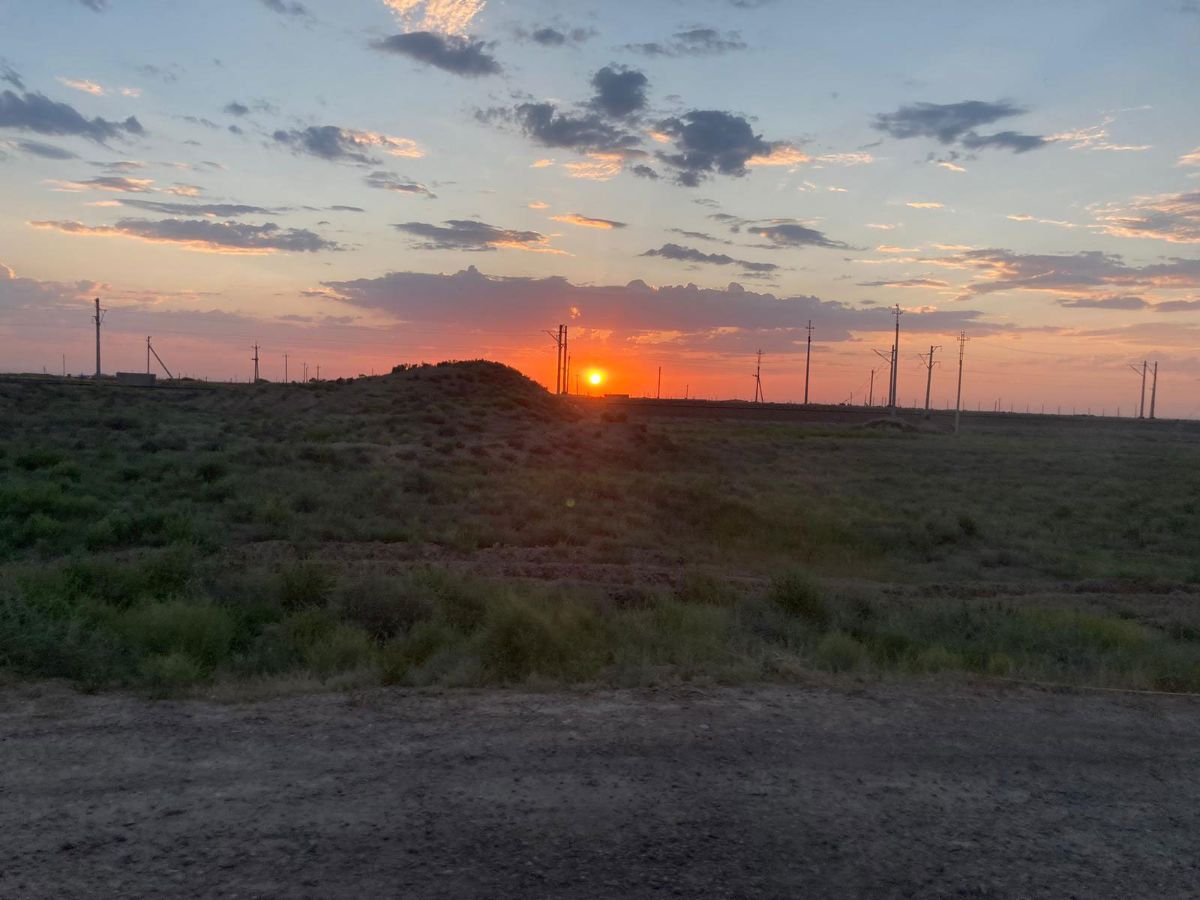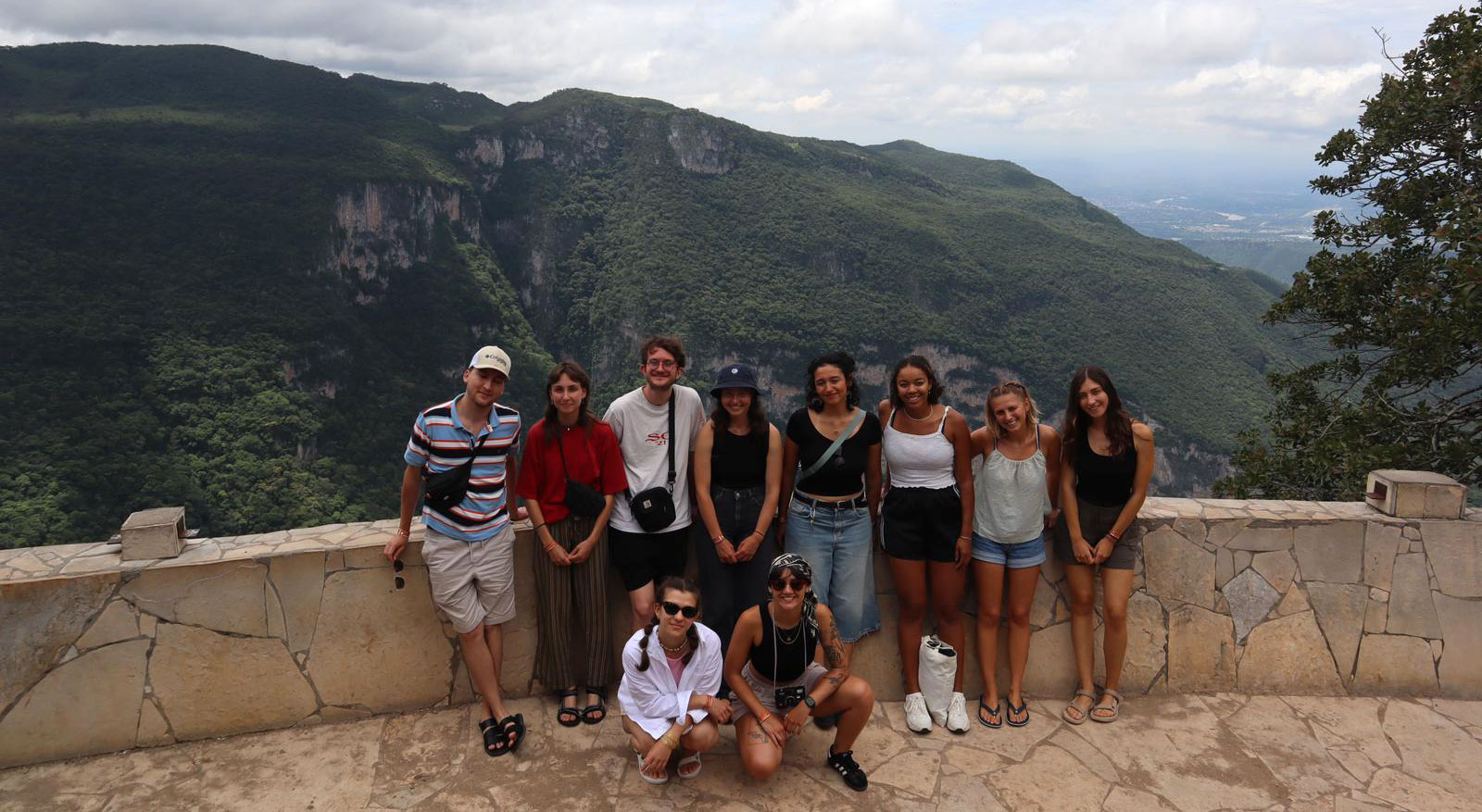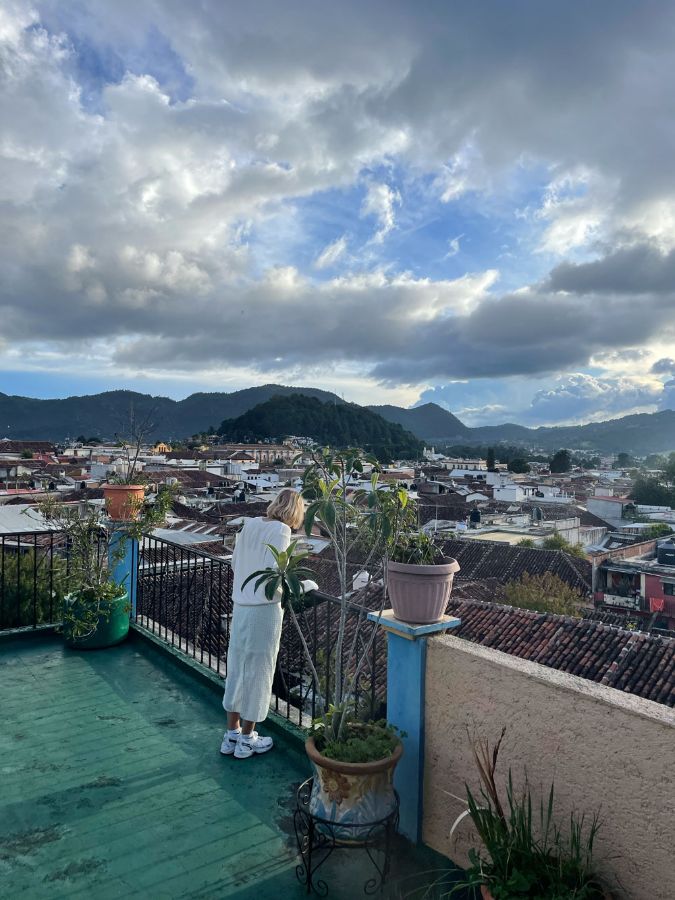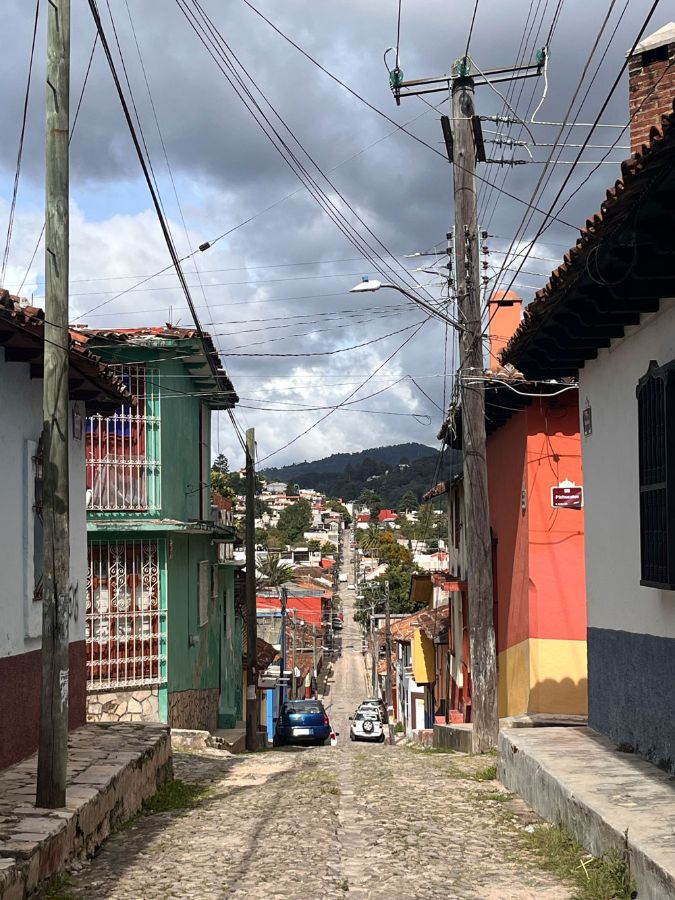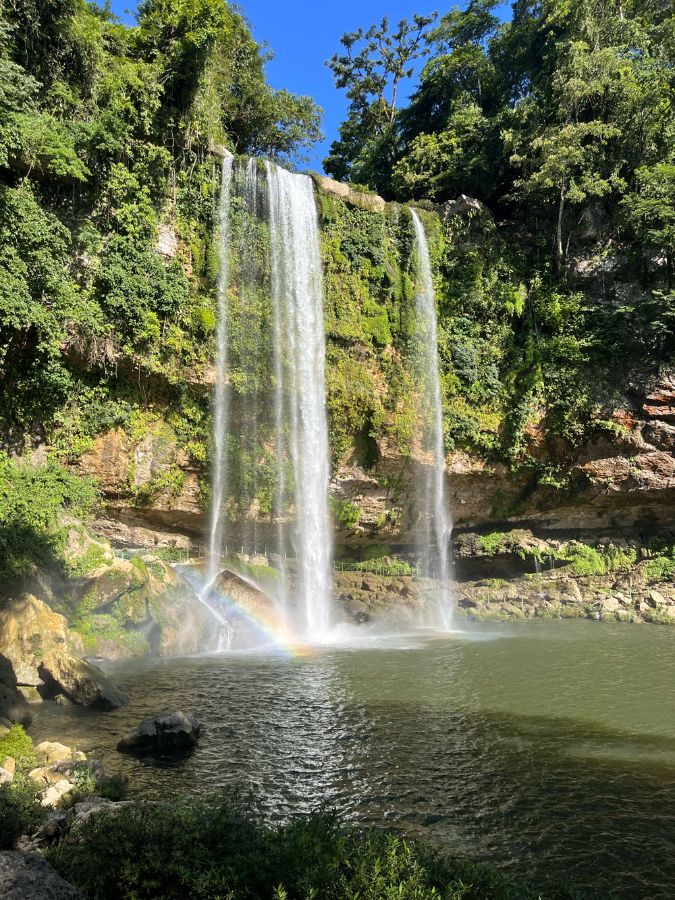Summer Schools and Field Research 2024: Student Experience Reports
In Bangladesh/Switzerland: Recontextualising an Ethnographic Collection (Teaching Research). Student Exchange Bangladesh–Switzerland
Written by the Zurich group
This research based teaching (Lehrforschung) was conceptualized as a student research exchange between Switzerland and Bangladesh. We aimed at recontextualizing the ethnographic collections of Lorenz Löffler, who did field research in the Chittagong Hill Tracts (a hilly borderland in southeastern Bangladesh) in the 1950s. Can we understand an ethnographic collection as a kind of time capsule? How do young people today relate to these collections? And: Does Löffler’s archive hold any potential for peacebuilding in the conflict troubled Chittagong Hill Tracts?
After some preparatory meetings in autumn 2023 under the supervision of Prof. Mareile Flitsch and Rebekka Sutter, the Zurich group (consisting of the students Sheila Honegger, Amir Mommartz, Ana Riciard, Thierry Schneeberger, led by Rebekka Sutter) travelled to Dhaka in February. During a workshop in the city of Chittagong, we discussed the potential of Löffler's legacy together with 20 indigenous students and received online inputs from Prof. Mareile Flitsch, who had initiated the student exchange and successfully applied for the funding obtained by the Stiftung für wissenschaftliche Forschung SWF. After three intense workshop days, we got the unique chance to tour the Chittagong Hill Tracts (CHT), including the village where Löffler conducted his research. Thanks to our committed local guide, we were even able to talk to people who remembered his stay in the village back in the 1950s.
In June 2024 we eagerly awaited the return visit: five indigenous students from Bangladesh landed at Zurich airport. It was overwhelming to meet Zing Ruat Par Bawm, Zoneikim Pangkhua, Ralong Khumi, U Shamong Kheyang and Thongpong Mro again, after months of uncertainty about whether their visas would be approved.
During their three-week stay, the entire team spent time at the Lindenmuseum in Stuttgart to examine the ethnographic objects collected by Löffler held there. Back in Zurich, we set up a small exhibition at the Ethnographic Museum, giving an insight into our project and raising awareness of the highly precarious situation of indigenous people in the Chittagong Hill Tracts.
Finally, we had the opportunity to participate in an academic conference at the Ethnographic Museum at the University of Zurich. Together with leading experts, activists, and a group of indigenous PhD students from the CHT who are currently studying in Europe, we discussed if and how ethnographic collections can be used for conflict transformation.
The project has not only provided us with a unique opportunity to experience the 'feel' of field research and to reflect on some fundamental challenges of collaborative projects based on museum ethnographic collections. The personal friendships we have developed with the local students encourage us also to continue discussing the ongoing complex political situation in Bangladesh from their perspective beyond the project period. Indeed: ethnographic collections do hold enormous potentials for peace building!
Our heartfelt thanks go to the SWF and to the Ethnographic Museum as well as the Maleya Foundation, and in particular to Mrinal Kanti Tripura and Uchacha A Chak as well as to Rebekka Sutter, who supported us almost “day and night” and always put us in touch with the right people in time, who shared their experiences and wisdom with us.
More insights about the projects: https://www.instagram.com/cht.collab.ch/
Uzbekistan: Historical heritage and contemporary challenges. Summer School Experience in Uzbekistan
written by Samuele Reino
In mid-June our group consisting of seven students, Prof. Dr. Peter Finke and Dr. Meltem Sancak set off from Zurich towards Central Asia. Due to a flight delay, we were also granted the opportunity to explore the vibrant megacity of Istanbul and to get an insight into a culture whose influence can be recognised in Central Asia and vice versa.
Then, after our arrival in Osh, Kyrgyzstan, we were invited to a wedding in the Uzbek part of the famous Fergana Valley. In addition to the excellent food and dancing, we were given an insight into wedding traditions. We heard about them again a few days later during one of the afternoon lectures held by Uzbek lecturers at the State University of Bukhara. There, we also attended a two-week language course in Uzbek, together with a group of students from the Institution of Asian and Oriental Studies (UZH). We also visited the old town of Bukhara and had the chance to explore the capital Tashkent and the historic city of Samarkand during a weekend.
Unfortunately, it turned out to be more difficult than expected to gain access to families outside of Bukhara. We had long waiting times and discussions with the local authorities. But through that we got insights into local power structures and gender roles. Luckily in the end, we were all able to live with Uzbek families for the rest of the Summer School. There, we conducted research on, for example beauty ideals, tourism, trade or irrigation systems.
The five weeks in the heart of Eurasia were challenging, but above all unforgettable and exciting. So, on behalf of all the participating students I would like to thank Meltem and Peter, who made this possible.
Katta Rahmat! Danke!
In Mayan Mexico: Change and Continuity in the Chiapas Highlands (Summer School). Summer School Experience in Chiapas, Mexico
written by a participating student
Our summer school excursion to Chiapas, Mexico, was a really positive and insightful experience. Most of us conducted our research in San Cristóbal de las Casas and Chenalhó. In San Cristóbal, we adapted quickly to the daily routine, using colectivos to get around and exploring the city’s colorful streets on foot. Casa Carmelita, our posada, offered a great view of the city and its surroundings, making it an ideal base for our activities.
We had the chance to visit several significant sites, such as Na Bolom, dedicated to the anthropologists Franz and Trudy Blom, and the stunning Cañón del Sumidero. Our two-day excursion to Aguazul, Cascadas de Misol-ha, and the Mayan ruins of Palenque allowed us to explore the natural and historical richness of the region, even in the face of roadblocks and travel challenges.
Working with researchers from UNAM-CIMSUR was a highlight, as they provided support and resources for our research. We were given a lot of freedom to pursue our individual projects, which, while sometimes challenging, was an invaluable learning experience. Despite some difficulties—such as finding interlocutors, dealing with language barriers, and navigating local health and travel issues—the trip offered us unique insights that went beyond typical tourist experiences.
Werner’s guidance and the group's willingness to help each other made this excursion an incredible experience and we can only recommend doing a Summerschool/excursion!
